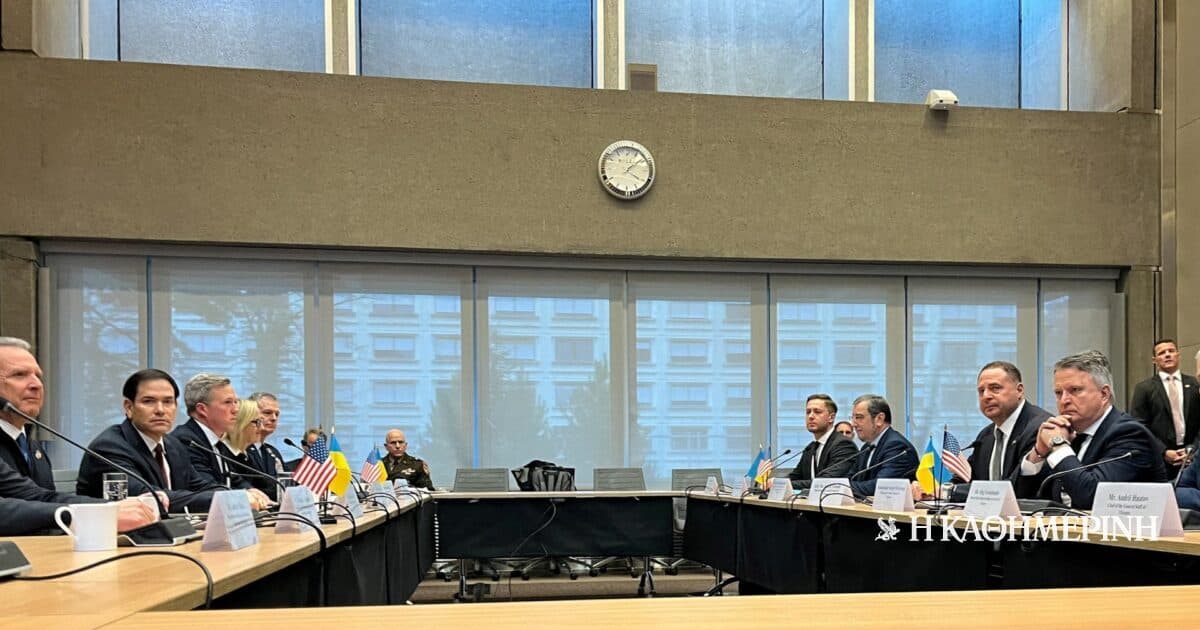All eyes remain on Geneva, where Ukrainian, European and American officials are in consultations on the US's 28-point plan for Ukraine.
US Secretary of State Marco Rubio spoke of tremendous progress and narrowing of differences."I think we had probably the most productive and important meeting so far in this whole process," he told reporters, noting that the delegations would continue their talks throughout the evening."There are still some things that need to be done, but right now, we are much further along than we were when we started this morning," he said.
This position contrasts with the attack launched earlier by US President Donald Trump, who, through a post on Truth Social, accused Kiev, on the one hand, of showing little gratitude for efforts to end the war and, on the other, Europe of continuing to buy oil from Russia.
Zelensky: Ukraine is grateful to the US
Following this post, Ukrainian President Volodymyr Zelensky said he was personally grateful to Donald Trump.
Ukraine is grateful to the United States, to every American heart, and personally to President Trump for the assistance, starting with the Javelins, which have saved Ukrainian lives, he told X. It is worth noting that the Javelins are American-made anti-tank missiles. Thousands of them were sent from the early stages of the Russian offensive as part of the assistance provided by the Joe Biden administration and became a symbol of the Ukrainian resistance.
The Europeans' counter-proposal
However, as early as yesterday, on the sidelines of the G20 Summit, European leaders had emphasized that the Trump plan, while a basis for dialogue, requires additional elaboration.
In this context, today they submitted a modified version of the US peace plan for Ukraine that reduces the proposed cuts to the size of Ukrainian military forces and limits territorial concessions.
The document, seen by Reuters, proposes a numerical limit for the Ukrainian armed forces of 800,000 in peacetime, compared to the limit of 600,000 presented in the peace plan presented by the United States.
The European plan also stipulates that negotiations for land exchanges will start from the Line of Contact, as opposed to the version of the American plan which stipulated from the outset that certain areas would be recognized as de facto Russian.
The European counter-proposal was drawn up by the European powers of the E3 format (Britain, France, Germany), according to an informed source.
It is also proposed that the security guarantees that Ukraine will receive from the United States be consistent with Article 5 of the Atlantic Alliance.
Regarding the use of Russian assets frozen in the West, and mainly in the European Union, it provides: Ukraine will be fully rebuilt and will be financially compensated through Russian assets which will remain frozen until Russia compensates Ukraine for the disasters, the text of the counter-proposal states.
The US plan called for $100 billion of Russian assets to be invested in a US-led reconstruction and investment effort in Ukraine, and for the US to receive 50% of the profits from the venture. The US plan also proposed that the remainder be invested in a separate US-Russian investment vehicle.
Merz: US plan for Russian funds unacceptable
At the same time, German Chancellor Friedrich Merz described as unacceptable the US plan to use Russian funds that have been frozen within the European Union, while he also rejected the prediction that an additional $100 billion would be added by the Europeans.
"These are points of the plan that certainly cannot be implemented without our approval," Merz said in an interview with public broadcaster ARD, adding that discussions are currently focused on using assets as a loan. If this loan is granted, it will be provided by the European Union and then given to Ukraine as collateral so that it can continue to buy weapons. But this is not something that directly affects the Americans. So, of course, the Americans cannot have access to this amount, he said, adding that the demand to add another 100 billion from Europe is also not something we can accept.
Friedrich Merz, however, expressed the hope that progress will be made in Geneva and that specific points of the American plan will be formulated in a way acceptable to all. This is also the focus of the proposal he submitted, for which he did not provide further details. I cannot and do not want to prejudge the negotiations currently underway in Geneva, but it is important that progress is made now, he said.
Responding to a question about why Europeans do not have more weight in this negotiation, the Chancellor argued that Europe should have supported Ukraine much earlier and much more intensively. We did too little, too late. We should have done more and earlier, he said characteristically.
Meloni: I'm interested in what plan we'll end up with.
"I don't think we should talk about a European counter-proposal to the Trump draft, because we can share many of its points, while, for reasons of time, it is better to focus on the proposal that already exists and on the key issues," said Italian Prime Minister Giorgia Meloni, on the sidelines of the G20 summit in South Africa.
Who wrote the peace plan interests me less, I am interested in what plan we will arrive at. Many issues included in this plan, however, concern Europe, a part of this plan needs Europe to be implemented. This is related to security guarantees, reconstruction, the issue of Ukraine's accession to the European Union. There are a number of issues that concern us and that others need to negotiate with us, he added.
The Italian Prime Minister, however, assessed that Putin is not serious about ending the war.

